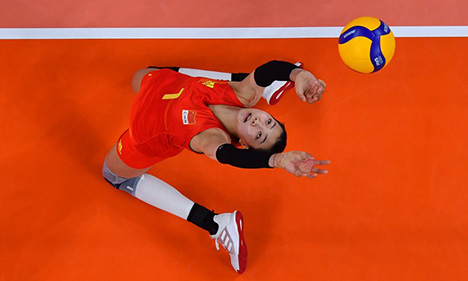Commentary: Moscow’s countermeasures sparked by West’s extreme pressure campaign targeting Russia
The Russia-Ukraine conflict has a complex historical context and realistic factors, among which the long-term geopolitical confrontation between Russia and the West and the extreme pressure the U.S. and Western countries have exerted on Russia since 2014 are external factors that cannot be ignored.
The first is security pressure. The U.S.-led NATO alliance has pursued five rounds of eastward expansion since the 1990s, and has seen Russia as its imaginary enemy, giving rise to Russia’s unease about its own security. Russian President Vladimir Putin once hoped to build good relations with the West when he had just came into power, evidenced by his support for the U.S. and NATO’s counter-terrorism actions in Afghanistan at the beginning of this century and by Russia having joined the G7 as a member (to make it the G8), as well as conveying the country’s willingness to even join the NATO alliance itself.
Despite these gestures, the U.S. and the West showed no trust and respect for Russia, leaving the country with a shrinking strategic space. If Ukraine follows in the footsteps of the three Baltic states and joins NATO, Russia will lose an important barrier to NATO encroachment on its borders.
The second is economic pressure. The U.S. and its allies around the world have imposed hundreds of rounds of economic sanctions on Russia focused on many different areas since 2014 over the Crimea crisis, causing setbacks in relations between both sides. These expanding sanctions led to a decrease in the trade volumes between Russia and Western countries, as well as less foreign investment and an economic downturn in Russia, directly impacting the livelihood of the Russian people. The situation had been worsened by the COVID-19 pandemic in 2020, and which has accelerated the country’s economic recession and social rifts.
The third is political pressure. The U.S. and the West supported opposition parties in Russia and openly rebuked Putin’s policies. In 2020, after constitutional amendments in Russia, the U.S. and Europe accused Russia of poisoning opposition leader Alexey Navalny, and then launched another round of sanctions on Russia under the pretext of Navalny’s arrest at the start of the following year. As Russia took some of its own countermeasures, confrontation between both sides began to escalate. There were also ongoing diplomatic frictions between Russia and Western countries. Both the U.S. and Russia refused to send ambassadors to each other’s respective posts for a long time, further deepening the geopolitical divide.
The fourth is public opinion pressure. By harnessing their absolute advantages in international media, the U.S. and Western countries have continued demonizing Russia and its leaders, including derogating their images in the international community. Besides, the U.S. accused Russia of meddling in its presidential election and hyped up Russia’s cyberattacks on the West. With regards to the COVID-19 vaccine that Russia took the lead in launching, Western countries disseminated disinformation about deaths caused by Russian COVID-19 vaccines, furthering hostilities between both sides. Statistics published by Russia Today shows that 96 percent of U.S. reports on Russia were negative in 2020.
Pushed by the West, Russia has less room for compromise and countermeasures. Marked by the new version of its national security strategy as approved in July 2021, Russia has adjusted its strategies and decided to seek a national revival even through the use of its military forces. From the perspective of Russia, the basic features of the world’s current military and political situation involves the formation of new global and regional power centers, including an intensified rivalry focused on spheres of influence. Russia believes in the growing importance of military forces as a way to realize each country’s geopolitical goals. This reveals that Russia, which cannot recover its economic status in the short term, has chosen to move back to a conventional footing. After that decision, Russia started to make preparations to reveal its true hand to the U.S. and countries in the NATO alliance.
In December 2021, Russia put forward a list of security guarantees, identifying its red lines in the area of geopolitics and began joint military exercises in places such as Belarus. These actions showcased Russia’s firm determination in safeguarding its own strategic interests and hopes that the U.S. and Western countries will pay attention to its concerns. That is to say, NATO must stop expanding eastward and deploying offensive weapons in places such as Ukraine. Russia has expressed on many occasions that it was willing to reach binding agreements with the U.S., but received no positive responses.
Under this backdrop, and by means of deploying its military forces and brandishing its nuclear deterrence capabilities, Russia aims to let the international community know that NATO and its unlimited expansion have already put Russia’s security at risk, and so Russia is prepared to take actions to fight back resolutely. On this view, then, Russia’s launch of a “special military operation” in Ukraine is actually a strong countermeasure against the West’s policy of containment toward Russia.
(Sun Zhuangzhi is the Director of the Institute of Russian, Eastern European & Central Asian Studies at the Chinese Academy of Social Sciences.)
Photos
Related Stories
- Only by upholding correct security vision can countries achieve universal security
- Ukrainian president proposes to extend martial law again
- Ukraine, Russia conduct fifth prisoner swap
- Ukrainian, EU leaders discuss more aid for Kiev
- Ukraine a pawn in U.S. strategy to weaken EU, says expert
- Algerian, Russian presidents discuss ties, Russia-Ukraine conflict over phone
- Commentary: NATO’s eastward expansion is root cause of Europe’s tragic security situation
- 10-year-war vow points to more uneasy direction of Russia-Ukraine conflict
- Facts about Russia-Ukraine conflict: Zelensky says Ukraine won't give up territories to end conflict
- Ukraine sends first part of questionnaire for EU membership to European Commission
Copyright © 2022 People's Daily Online. All Rights Reserved.










